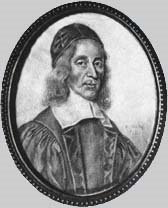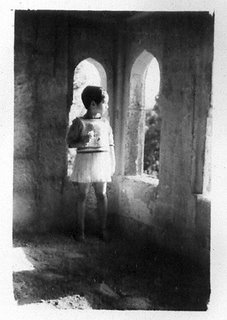journal jottings -1
 A strange sad image of Afghanistan: the woman by lighting & composition seemingly turned into a rock, & the men equipped to end any other life that dares to survive. Must it always be so?
A strange sad image of Afghanistan: the woman by lighting & composition seemingly turned into a rock, & the men equipped to end any other life that dares to survive. Must it always be so?
scribendi cacoethes
Egg-heads, snake-fish & berries
In the cavernous white-tiled upstairs bathroom at the Kolhapur Residency there lived a ghost. It lurked behind the door & sometimes, when one had shut oneself in, it stood disclosed, in the shape of a bald-headed man who grinned evilly as he proceeded to peel his egg-head, exactly as one peeled a boiled egg. Of course, one did not stay to watch the performance through to the end.
This was the children’s bogeyman – child’s, rather, for only the eldest saw it. The other was a happy toddler who knew naught of boiled eggs or ghosts. The adults had an invisible but audible ghost. It traversed the bedroom, causing the boards to creak, went to the washbasin in the bathroom and opened the tap. That was all. The water running out of the tap was just as invisible as the ghost & just as audible.
This ghost, or another, used to manifest itself to a previous Collector & District Magistrate in more sensible form. As a malignant dwarf it sat upon his chest & strove to throttle him while he struggled to escape. After a few such encounters he abandoned his post, a broken man. So the story was told. But the children’s father said that that was no ghost; rather it was Mr X’s bad conscience. For the man was a notoriously dishonest officer, & perhaps guilty of worse crimes than extortion.
Kolhapur District abounded in ghosts & in strange creatures. In the parkland around the Chhatrapati Maharaj’s palace was a lake. When it all but dried in summer, shrinking to some deep pools, wriggling shapes burrowed into the soft mud on the edges of the water. They were fish. Yes, fish of an ancient breed, & called murrel. Like snakes, they had an abdominal cavity that ran the length of their bodies. And when they were chopped up, each piece leaped about a bit before subsiding. The adults urged their elder child to eat. It was a tasty fish, they said. She shuddered & declined to taste the proffered dish.
Even such a conscientious Collector as the children’s father could at least once in his brief tenure take the household off for a break. Parents, children, maternal grandparents, ayah, & maid to the grandmother, spent a day or two at Panhala, a ‘hill-station’ some 20 km away from headquarters.
Panhala Fort was famous. Shivaji, the ancestor of the friendly Chhatrapati Maharaj, loved it. Also, he almost died in it, besieged by a deadly foe. It is said that a liegeman of his pretended to be his lord and fought to the death, while Shivaji stole away from his distracted enemies. But Shivaji’s son, the rebellious Sambhaji, also nearly met an early death there – by his own father’s decree. It must have been difficult to be son to such a larger-than-life father, but the young man had consorted with his father’s enemies….. Shivaji locked up his son in the Sajja Kothi & sentenced him to death, denying him both food & water. But Sambhaji escaped out of a window overlooking a sheer drop of some fearsomeness. They said he had been assisted by his mother. Naturally.
Even here, on a supposed break from routine, the Collector had to preside over a meeting. It was a noisy one, with voices arguing vociferously (how the newspapers used to love that word once!), for the times were troubled as they had been in Shivaji’s day. The lumbering state which had evolved from the Bombay Presidency of the British Raj was convulsed with agitations for two separate states. The Collector had to keep the peace until his masters made up their minds about retaining or dividing the state. All this the girl learned later, for she was too young to be told such things. But she sensed conflict; & it did not seem out of place in Panhala.
That day the Sajja Kothi was clammy from the low-lying clouds drifting in at its windows. In such a place as that, it was not difficult to believe all the tales told of Panhala. Then the sun rode out & the ghostly wisps of wet rain-cloud melted away. The ayah & the other maid led the children out into a thorny wilderness around the Sajja Kothi. Oh joy & wonder! There were bushes abounding among the thorns & weeds, & on the bushes glowed bunches of small berries. The women said they were called karvanda, & scolded the girl for eating too much of the acidulous fruit. “You will be sick”, they said, but they themselves ate quite as many as they gathered on the large rain-washed leaves, to take back to the adults within doors.
It is seemly to end a tale of ghosts & questionable doings & unsettling experiences with a burst of sunshine & bushes full of shiny dark berries.
In the cavernous white-tiled upstairs bathroom at the Kolhapur Residency there lived a ghost. It lurked behind the door & sometimes, when one had shut oneself in, it stood disclosed, in the shape of a bald-headed man who grinned evilly as he proceeded to peel his egg-head, exactly as one peeled a boiled egg. Of course, one did not stay to watch the performance through to the end.
This was the children’s bogeyman – child’s, rather, for only the eldest saw it. The other was a happy toddler who knew naught of boiled eggs or ghosts. The adults had an invisible but audible ghost. It traversed the bedroom, causing the boards to creak, went to the washbasin in the bathroom and opened the tap. That was all. The water running out of the tap was just as invisible as the ghost & just as audible.
This ghost, or another, used to manifest itself to a previous Collector & District Magistrate in more sensible form. As a malignant dwarf it sat upon his chest & strove to throttle him while he struggled to escape. After a few such encounters he abandoned his post, a broken man. So the story was told. But the children’s father said that that was no ghost; rather it was Mr X’s bad conscience. For the man was a notoriously dishonest officer, & perhaps guilty of worse crimes than extortion.
Kolhapur District abounded in ghosts & in strange creatures. In the parkland around the Chhatrapati Maharaj’s palace was a lake. When it all but dried in summer, shrinking to some deep pools, wriggling shapes burrowed into the soft mud on the edges of the water. They were fish. Yes, fish of an ancient breed, & called murrel. Like snakes, they had an abdominal cavity that ran the length of their bodies. And when they were chopped up, each piece leaped about a bit before subsiding. The adults urged their elder child to eat. It was a tasty fish, they said. She shuddered & declined to taste the proffered dish.
Even such a conscientious Collector as the children’s father could at least once in his brief tenure take the household off for a break. Parents, children, maternal grandparents, ayah, & maid to the grandmother, spent a day or two at Panhala, a ‘hill-station’ some 20 km away from headquarters.
Panhala Fort was famous. Shivaji, the ancestor of the friendly Chhatrapati Maharaj, loved it. Also, he almost died in it, besieged by a deadly foe. It is said that a liegeman of his pretended to be his lord and fought to the death, while Shivaji stole away from his distracted enemies. But Shivaji’s son, the rebellious Sambhaji, also nearly met an early death there – by his own father’s decree. It must have been difficult to be son to such a larger-than-life father, but the young man had consorted with his father’s enemies….. Shivaji locked up his son in the Sajja Kothi & sentenced him to death, denying him both food & water. But Sambhaji escaped out of a window overlooking a sheer drop of some fearsomeness. They said he had been assisted by his mother. Naturally.
Even here, on a supposed break from routine, the Collector had to preside over a meeting. It was a noisy one, with voices arguing vociferously (how the newspapers used to love that word once!), for the times were troubled as they had been in Shivaji’s day. The lumbering state which had evolved from the Bombay Presidency of the British Raj was convulsed with agitations for two separate states. The Collector had to keep the peace until his masters made up their minds about retaining or dividing the state. All this the girl learned later, for she was too young to be told such things. But she sensed conflict; & it did not seem out of place in Panhala.
That day the Sajja Kothi was clammy from the low-lying clouds drifting in at its windows. In such a place as that, it was not difficult to believe all the tales told of Panhala. Then the sun rode out & the ghostly wisps of wet rain-cloud melted away. The ayah & the other maid led the children out into a thorny wilderness around the Sajja Kothi. Oh joy & wonder! There were bushes abounding among the thorns & weeds, & on the bushes glowed bunches of small berries. The women said they were called karvanda, & scolded the girl for eating too much of the acidulous fruit. “You will be sick”, they said, but they themselves ate quite as many as they gathered on the large rain-washed leaves, to take back to the adults within doors.
It is seemly to end a tale of ghosts & questionable doings & unsettling experiences with a burst of sunshine & bushes full of shiny dark berries.
journal jottings - 2

ORATORY
 THE CALLCome, my Way, my Truth, my Life:
THE CALLCome, my Way, my Truth, my Life:Such a Way, as gives us breath:
Such a Truth, as ends all strife:
And such a Life, as killeth death.
Come, my Light, my Feast, my Strength:
Such a Light, as shows a feast:
Such a Feast, as mends in length:
Such a Strength, as makes his guest.
Come, my Joy, my Love, my Heart:
Such a Joy, as none can move:
Such a Love, as none can part:
Such a Heart, as joyes in love.
~ George Herbert
This favourite poem by a loved poet was set to music most beautifully by a favourite composer, Ralph Vaughan Williams. If only one could get the sheet-music…..
journal jottings - 3
~ “Marie Antoinette: Martyr or saint?”
So the wheel of fortune turns; but not moved by the hand of Justice. It is Commerce that raises up the poor ghost & sets it to work raking in the shekels; from $40 million film which is expected to return much profit, to the inevitable porcelain figurines in limited editions. Perhaps she was merely an egocentric who was born, unfortunately, into a state where she could indulge her whims without sufficient hindrance. When the bills came in – as they always do – she had only her head left to pay with. Regarded in her pomp she is hard to endure. But in her fallen state she might - & did – move her enemies to pity.

Municipal Councillor to American Ambassador: “Hey-yu seen joo?”
Ambassador: “I, er, oh, Ju – Juhu? Yes I’ve been to Juhu – “
Councillor: “End hey-yu seen beach? Thee keeds are meelking et thee beach!”
Complete discomfiture of poor Chester Bowles, who is led away dumbfounded. (There is, however, no reason to believe the story that he was later introduced to a gathering of notables with the following encomium: “Thees ees Cheyster Bowels. Ehma bahu guts chhay. (He is full of guts.))
Ambassador: “I, er, oh, Ju – Juhu? Yes I’ve been to Juhu – “
Councillor: “End hey-yu seen beach? Thee keeds are meelking et thee beach!”
Complete discomfiture of poor Chester Bowles, who is led away dumbfounded. (There is, however, no reason to believe the story that he was later introduced to a gathering of notables with the following encomium: “Thees ees Cheyster Bowels. Ehma bahu guts chhay. (He is full of guts.))
ATTIC TROVE
Milton, steeped in classical studies, was able to bring to English – that language spawned of the barbarous northern tongues & the Latin-derived – some of the expressive strength & sonority of Latin. Take a famous quotation from Book I of Paradise Lost:
Thick as autumnal leaves that strow the brooks
In Vallombrosa, ………..
In Vallombrosa, ………..
Say it out loud. The first phrase, “Thick as autumnal leaves”, cannot be made to trip lightly off the tongue. It is clogged & slow, moving heavily. Then comes the clatter of those lamentable dry leaves – “that strow the brooks” - & then the cadence – the fall – “in Vallombrosa”.
Not only does the place-name make a perfect cadence by its sound, but its very composition – ‘valley full of shadows/ shadowed valley’ – completes the desired sensation of melancholy, of decline & inevitable loss, of farewell.
It is not many English poets who can achieve such effects in this way. That’s why Milton’s lines & verses stick in one’s mind although the man himself is very far from being embraced.
Milton would have learned from the Odes of Horace, among other classics, & he would have been familiar with the well-known lament:
Eheu fugaces, Postume, Postume
Labuntur anni.
Alas, Postumus, Postumus, the fleeting years are slipping by.
Labuntur anni.
Alas, Postumus, Postumus, the fleeting years are slipping by.
Even if you take a brave stab at speaking the Latin lines out loud despite your ignorance of the tongue, the advantages of the old ‘dead’ language will be obvious when you compare it with the English translation. Nevertheless, the dying fall of the last two words is matched by Milton’s “in Vallombrosa”.
Ah, the fascinations of language & of literature!
Ruth Heredia is the originator and
holds the copyright to all material on this blog unless credited to some
source. Please do not use it or pass it off as your own work. That is theft. If
you wish to link it, quote it, or reprint in whole or in part, please be
courteous enough to seek my permission.






